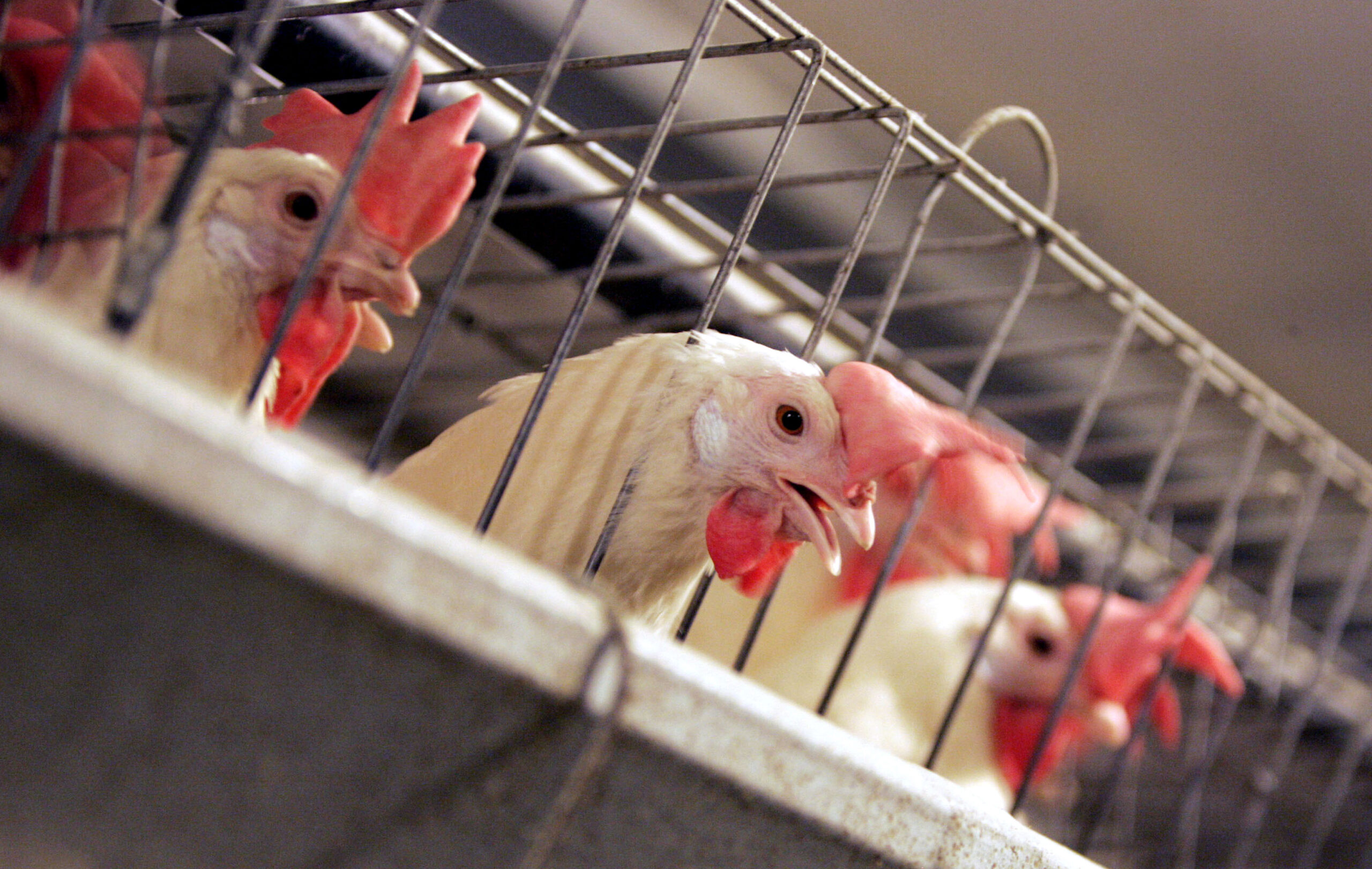Georgia is the nation’s number one poultry state, producing more than 31 million pounds of chicken and seven million table eggs every day, according to the Georgia Poultry Federation. And that production has not abated during the crisis, said Mike Giles, the federation’s president.
Poultry plants, which can employ thousands of workers, have been dubbed essential services and are continuing work during the pandemic. Companies have instead implemented new safety protocols to protect workers from the risks of the coronavirus in crowded conditions.
But the virus has made its mark. A 2,000-person Tyson Foods plant in Camilla, Georgia, has reported four employee deaths.
Edgar Fields, president of the southeast council of the RWDSU union, represents workers at that plant.
He painted a picture of employees working “elbow-to-elbow,” three feet across a conveyor belt away from each other.
Fields said the companies he works with have made changes to limit the risk of exposure, including emergency paid sick leave, putting up partitions between workers and enforcing social distancing at break time, but there continues to be risk.
“We’ve got to keep the poultry plants running, but we have to keep them running in a safe way. We can’t trade chicken for the death of our members. The problem that we face is if you go to Kroger and there’s not any chicken there, it’s going to be a hell of a situation, more so when there wasn’t any toilet paper on the shelves,” he said.
Giles with the Poultry Federation said companies are doing a lot to try to protect workers, including temperature checks, and encouraging employees to take breaks outside in tents rather than crowded breakrooms and increasing existing handwashing protocols.
He added that companies have shifted their business models and how they’re packaging products to match purchasing patterns.
“Demand for most consumers has shifted, and consumers are purchasing more food through retail and consuming chicken at home. There’s been an attempt to adapt to those new supply chain needs,” he said.
“That’s something that doesn’t happen overnight, but the industry at this point has been able to provide food where and when consumers need it.”
One plant in Moultrie, Georgia, owned by Sanderson Farms, voluntarily sent 400 workers home earlier this month for two weeks in an effort to limit a fast-growing outbreak in South Georgia.
Pic Billingsley, director of development and engineering, said the Laurel, Miss.-based company sent those employees home for two weeks of paid leave, out of “an abundance of caution.”
The plant has confirmed cases, Billingsley said, but declined to release a number.
“It was just a very cautious move to make sure we did our part in that area not to facilitate the virus moving from county to county,” he said.
The company, which is the third-largest poultry producer in the country, sent home all the Moultrie plant employees who lived in Dougherty County, Ga. The Albany area has one of the highest per capita rates of COVID-19 in the world.
The plant remained open with the other roughly 1,100 employees coming into work under stricter social distancing guidelines including mandatory masks, partitions, temperature checks and more spread out work stations where possible, he said.
“The sole purpose of what we do everyday is make sure we do everything we can do to keep our employees safe,” he said. “Whatever that is, is what we’re trying to do.”
Giles said that food and agriculture workers in this pandemic are “heroes in society right now.”
“Through all of this, while taking the measures to protect themselves, protect their employees and protect their families, they’re showing up to work and producing food.”
Fields echoed that sentiment: “We as a society must do more to appreciate that these workers are putting their lives on the line, putting their families in jeopardy, to provide food for us.”










